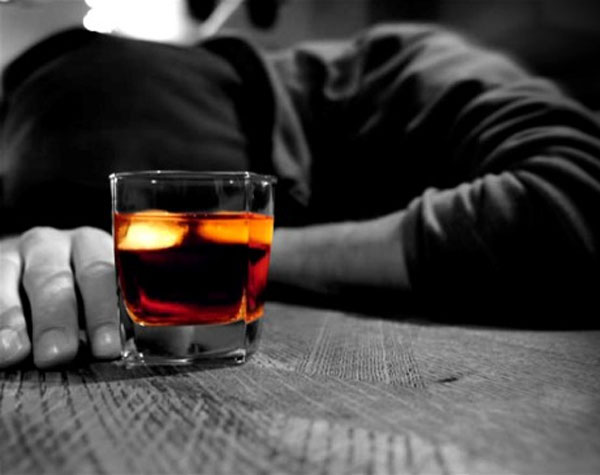Mythbusters - Death by withdrawal

Can a person chronically dependent on alcohol really die if they abruptly stop drinking? Or is this just another clever excuse not to part with their drug of choice?
Mythbusters investigates …
When Amy Winehouse was found dead in her London home earlier this year, many assumed the cause of death was overdose. The only question on everyone’s minds was what she’d overdosed on. Was it heroin? Was it barbiturates? Few would have suspected she’d died of alcohol withdrawal, but her family were certain this was the means of her demise.
Pam Corkery, journalist, broadcaster and former politician, has recently celebrated a year without drinking. She told the New Zealand Herald her decision to get on the wagon began with a call to an alcohol helpline. She was advised to go to a hospital, but she declined, saying she didn’t want her family to know the extent of her addiction. So instead, they suggested she keep on drinking, just as a “maintenance arrangement”, until she could come and see them. She was told this would prevent withdrawal convulsions.
There are inherent difficulties and hazards involved with empirically testing the serious hazards of alcohol withdrawal, so Mythbusters consulted Dr Doug Sellman, Professor of Psychiatry and Addiction Medicine at the University of Otago. He agreed there can indeed be very real dangers when an alcoholic goes cold turkey.
“Addiction involves a hijacking of the survival mechanisms in the brain. People with drug addiction continue to use the drug as if their lives depend upon it. Body and brain get their wires crossed, so people in withdrawal can certainly feel like they are going to die if they don’t get enough of the drug they ‘need’.”
Withdrawal in someone with alcohol addiction itself is not life threatening, but there are complications that can lead to death, such as convulsions, where the person has an epileptic seizure, and cardiac arrhythmias, where the heart goes into a spasm and doesn’t pump blood efficiently. Other common symptoms include nausea, sweating and dysphoria (anxiety and restlessness).
And we’ve all heard of the delirium tremens or ‘the DTs’. Having the DTs is like being in a constant state of confusion and hyperactivity, and symptoms includes disorientation, hallucinations and vomiting. If the pink elephants aren’t bad enough, an alcoholic experiencing the DTs is susceptible to grand mal seizures, heart attacks and stroke.
Alcohol withdrawal symptoms are caused when prolonged periods of excessive alcohol intake are reduced or stopped abruptly. Alcohol, like many other drugs, is a sedative. Generally, it relaxes the body and induces calm. Over time, the brain adapts to frequent heavy doses. Its neurotransmitter system recognises the sedation and goes into a hyperactive state to overcome the effects of the alcohol so it can continue tofunction at normal levels. But when the body suddenly stops its intake of alcohol, the neurotransmitter system continues working in overdrive. This ‘neurotransmitter rebound’ can lead to all the problems we’ve discussed above.
It’s a bit like two equally balanced people playing tug of war and one person suddenly drops the rope and the other is sent flying.
And that’s why Dr Sellman agrees the chronic severe alcoholic should probably continue drinking if immediate help is not available. It’s not just an excuse.
“It is easier on the body to reduce down over days or even weeks before stopping altogether. Another day of heavy drinking to prevent severe withdrawal symptoms while the person finds help is not going to make any appreciable difference to their health in the context of the thousands of heavy drinking days in their life.”
So Mythbusters’ conclusion is yes, you can die from alcohol withdrawal – not because stopping drinking is bad, but because your body has become convinced it needs alcohol to survive, and it just might kill you if it doesn’t get it.
And what about Amy? Just as we go to press, a coroner has announced she was more than five times over the British drink-drive limit when she died. So it seems withdrawal was not the problem in her particular case. However, on the basis of what we knew before the inquest into her death, it was a feasible scenario.
Recent news

Reflections from the 2024 UN Commission on Narcotic Drugs
Executive Director Sarah Helm reflects on this year's global drug conference
What can we learn from Australia’s free naloxone scheme?
As harm reduction advocates in Aotearoa push for better naloxone access, we look for lessons across the ditch.

A new approach to reporting on drug data
We've launched a new tool to help you find the latest drug data and changed how we report throughout the year.

